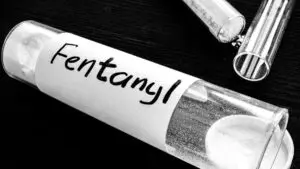Best Way to Detox and Recover from Alcohol Abuse
Alcohol use disorder, which accounts for drinking problems ranging from moderate to severe, is a disease that affected as many as 14.4 million Americans in 2018, according to the NIAAA. Alcohol dependence can change the body’s biochemistry and stopping alcohol use cold turkey can have devastating effects, known as withdrawal symptoms. In order to cope with these symptoms, medical detox is one of the best ways to detox from alcohol because it allows for the safe transition into sobriety.
Symptoms and Dangers of Alcohol Withdrawal Syndrome (AWS)
When a person who has become dependent on alcohol through frequent, heavy alcohol use suddenly stops drinking, it causes moderate to severe withdrawal symptoms to occur. These symptoms can be life-threatening. For this reason, it is always advised that you speak to a medical professional before attempting to stop alcohol use.
While symptoms may vary from person to person, the more severe the alcohol use disorder was, the greater the symptoms experienced during withdrawal may be. Some of the common symptoms that one might experience with alcohol withdrawal syndrome include:
- Headaches
- Nausea
- Vomiting
- Insomnia
- Sweating
- Mood swings
- Fatigue
- Shakiness
- Increased heart rate
- Tremors
- Foggy thinking
- Depression
- Anxiety
- Cravings
The most dangerous of the symptoms of AWS is known as delirium tremens. While rare, they are also difficult to predict. Delirium tremens is the most common cause of deaths during alcohol withdrawal, and as such, any moderate to severe dependence on alcohol should be handled by healthcare practitioners.
The symptoms of delirium tremens include:
- Seizures
- Severe confusion coupled with hallucinations
- Agitation
- Fever
Detoxing the Safe Way
Detox from alcohol should be done under medical supervision. When beginning your road to recovery, the best ways to detox from alcohol is through medical detox programs. This provides a person with an alcohol dependence a way to break the physical bonds of alcoholism, so one can begin the healing journey of recovery.
A person going through an alcohol detox may require 24-hour medical supervision to ensure their safe recovery. Medically-assisted detox programs utilize supervised use of medications to manage withdrawal symptoms and curb cravings. These FDA-approved medications are approved for use to treat alcohol withdrawal syndrome and other forms of withdrawal. Any medications used during the detox process are prescribed and monitored by a licensed medical professional to reduce the chance of abuse or forming a secondary addiction. In some cases, one may require a more long-term tapering approach to detox for a smooth, effective transition into long-term recovery.
What Happens After Detox?
Addiction is a complex disease that can have many contributing factors that stretch beyond just a physical dependence on a substance. As such, a detox by itself is not enough to treat the underlying causes of addiction. Without further treatment, the risk of relapse becomes far higher.
In order to help one achieve long-term sobriety, a holistic approach to treatment is needed; one which incorporates the best-known behavioral therapies, dual diagnosis treatments, and other aspects of treatment that can help establish a solid foundation for the future.
Whether through an outpatient or partial hospitalization program, the drastic changes that are often required to help a recovering person overcome their alcohol abuse for good can be accomplished.
If you would like professional, clinical help with alcohol detox, then contact Tangu today at 844-297-8116 to discover the wide range of accredited addiction treatment services that we offer.



